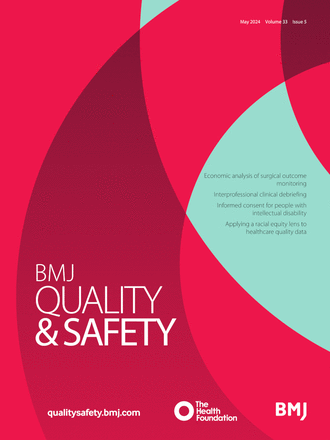How therapeutic relationships develop in group-based telehealth and their perceived impact on processes and outcomes of a complex intervention: a qualitative study
IF 5.6
1区 医学
Q1 HEALTH CARE SCIENCES & SERVICES
引用次数: 0
Abstract
Background Therapeutic relationships are a key domain in healthcare delivery. While well-understood in in-person interventions, how therapeutic relationships develop in more complex contexts is unclear. This study aimed to understand (1) how therapeutic relationships are developed during the telehealth delivery of a group-based, complex intervention and (2) the perceived impact of these relationships on intervention processes, such as intervention delivery and engagement, and patient outcomes, such as patient safety and satisfaction. Methods This qualitative study, nested within a randomised controlled trial, used an interpretivist approach to explore the perceptions of 25 participants (18 patients with shoulder pain and 7 clinicians) regarding developing therapeutic relationships in a group-based, complex intervention delivered via telehealth. Semi-structured interviews were conducted within 4 weeks of the telehealth intervention period and then analysed through in-depth, inductive thematic analysis. Results We identified six themes: (1) ‘Patients trust clinicians who demonstrate credibility, promoting the development of therapeutic relationships’; (2) ‘Simple features and approaches shape the therapeutic relationship’, including small talk, time spent together and social observation; (3) ‘A sense of belonging and support fosters connections’, facilitated by clinicians providing individualised attention within the group; (4) ‘Developing therapeutic relationships can impact the delivery of core intervention components’, reflecting challenges clinicians faced; (5) ‘Therapeutic relationships can facilitate intervention engagement’, through enhanced patient understanding and confidence and (6) ‘Therapeutic relationships can contribute to patient safety and satisfaction’, with patients feeling more comfortable reporting intervention-related issues. Conclusions Therapeutic relationships were developed during group-based telehealth sessions through a set of factors that may require additional skills and effort compared with in-person interactions. While these relationships have a perceived positive impact on intervention engagement and patient outcomes, clinicians need to find a balance between building relationships and delivering the telehealth intervention with fidelity. Trial registration number ACTRN12621001650886. All data relevant to the study are included in the article or uploaded as supplementary information.在基于小组的远程保健中如何发展治疗关系及其对复杂干预的过程和结果的影响:定性研究
背景 治疗关系是医疗保健服务的一个关键领域。虽然在面对面干预中治疗关系已被充分理解,但在更复杂的情况下治疗关系是如何发展的还不清楚。本研究旨在了解:(1) 在基于小组的复杂干预的远程医疗实施过程中,治疗关系是如何发展的;(2) 这些关系对干预过程(如干预实施和参与)以及患者结果(如患者安全和满意度)的影响。方法 该定性研究嵌套于随机对照试验中,采用解释主义方法探讨了 25 名参与者(18 名肩痛患者和 7 名临床医生)对通过远程医疗提供的基于小组的复杂干预中发展治疗关系的看法。我们在远程医疗干预期的 4 周内进行了半结构化访谈,然后通过深入的归纳式主题分析进行了分析。结果 我们确定了六个主题:(1)"患者信任那些表现出可信度的临床医生,从而促进治疗关系的发展";(2)"简单的特征和方法塑造了治疗关系",包括闲聊、共处时间和社会观察;(3)"归属感和支持促进了联系",临床医生在小组内提供的个性化关注促进了这种联系;(4) "发展治疗关系会影响核心干预内容的实施",反映了临床医生面临的挑战;(5) "治疗关系可促进干预参与",通过增强患者的理解和信心;(6) "治疗关系有助于提高患者的安全感和满意度",患者在报告与干预相关的问题时会感到更加自在。结论 在以小组为基础的远程医疗过程中,通过一系列因素建立了治疗关系,与面对面的互动相比,这些因素可能需要额外的技能和努力。虽然这些关系对干预参与度和患者疗效有积极影响,但临床医生需要在建立关系和忠实实施远程保健干预之间找到平衡。试验注册号为 ACTRN12621001650886。与研究相关的所有数据均包含在文章中或作为补充信息上传。
本文章由计算机程序翻译,如有差异,请以英文原文为准。
求助全文
约1分钟内获得全文
求助全文
来源期刊

BMJ Quality & Safety
HEALTH CARE SCIENCES & SERVICES-
CiteScore
9.80
自引率
7.40%
发文量
104
审稿时长
4-8 weeks
期刊介绍:
BMJ Quality & Safety (previously Quality & Safety in Health Care) is an international peer review publication providing research, opinions, debates and reviews for academics, clinicians and healthcare managers focused on the quality and safety of health care and the science of improvement.
The journal receives approximately 1000 manuscripts a year and has an acceptance rate for original research of 12%. Time from submission to first decision averages 22 days and accepted articles are typically published online within 20 days. Its current impact factor is 3.281.
文献相关原料
| 公司名称 | 产品信息 | 采购帮参考价格 |
|---|
 求助内容:
求助内容: 应助结果提醒方式:
应助结果提醒方式:


